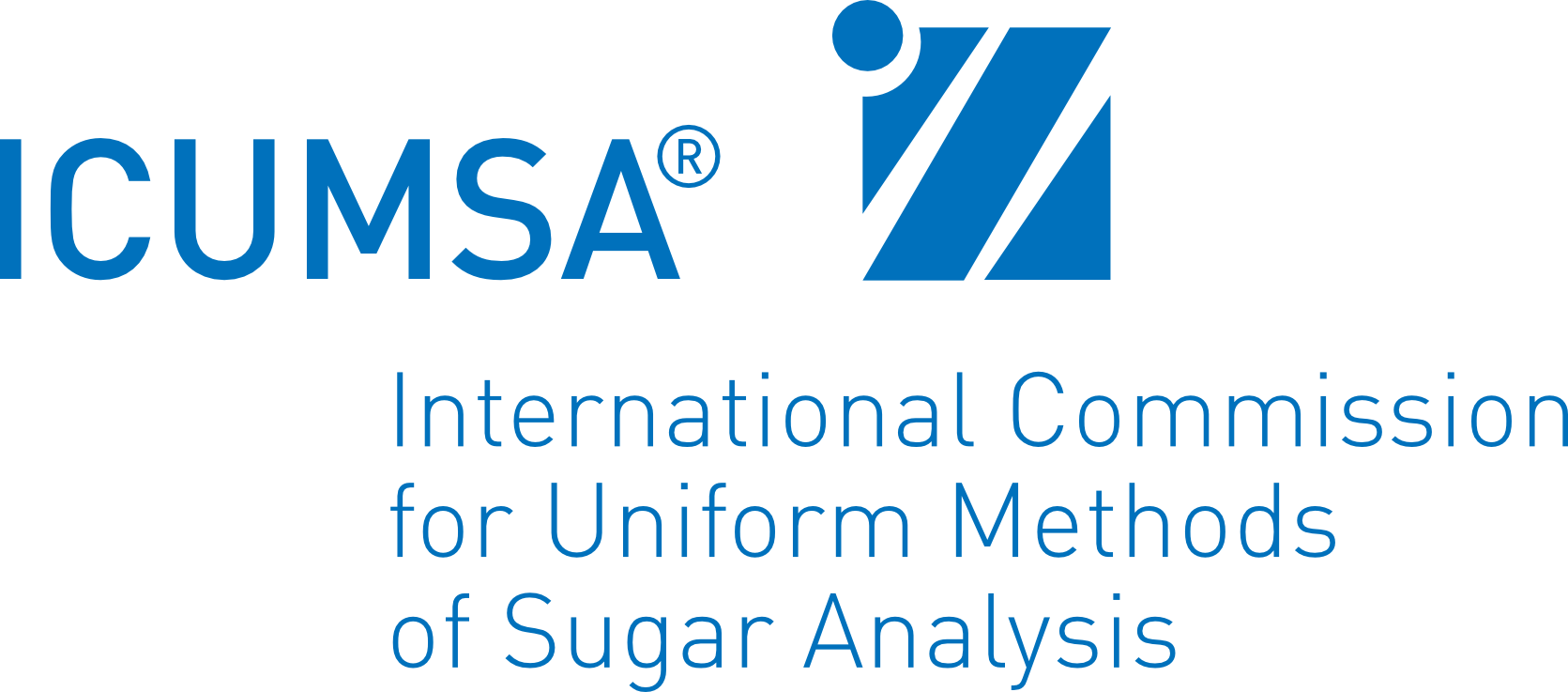Message from the President
Changes to ICUMSA Scientific Subjects and Referees
I am pleased to report that we have successfully reorganized the scientific subjects within ICUMSA and appointed Referees to each Subject. This change reflects the fact that some subjects had closed, other subjects required starting and rationalization was appropriate to allow focus where necessary.
The table below lists the old and new Subjects together with the new Referees.
| New Subject | Incorporating (Old Subject) | Referee |
|---|---|---|
| S1 Constitution and By-Laws | President | |
| S2 Method Format, Collaborative Testing and Statistical Treatment of Data | Roger Wood | |
| S3 Colour, Turbidity and Reflectance Measurement | Christiane Lakenbrink | |
| S4 Physical Methods | S4 Density, Optical Rotation and Refractive Index | Mathis Kuchejda |
| S5 Chemical Methods | S2 Oligosaccharides and Polysaccharides S8/9 Chromatographic Techniques S10 Enzymatic and Immunological Methods S13 Reducing Sugars S14 Ash | Maciej Wojtczak |
| S6 Microbiology | S12 Microbiology | Maritta Jacobs |
| S7 Indirect Methods and New Technologies | S5 Dry Substance S6 Indirect Methods of Analysis On-line /At-line techniques | Amélia Ferraz |
| S8 Sampling and Sample Preparation | Roger Wood |
ICUMSA General Subjects
There have also been changes made to the Referees in the General Subjects and the table below gives the current position here.
| General Subject | Previous Referee | Current Referee |
|---|---|---|
| GS1 Raw Sugar | Andrew Harrison | Andrew Harrison |
| GS2 White Sugar | Karen Pardoe | Karen Pardoe |
| S3 Specialty Sugars | Niels Andersen | Niels Andersen |
| GS4 Molasses | Gillian Eggleston | Nigel Jones |
| GS5 Cane | Dr Rao | Camille Roussel |
| GS6 Beet | Dierk Martin | Dierk Martin |
| GS7 Cane Processing | Laurent Corcodel | Gillian Eggleston |
| GS8 Beet Processing | Jean-Marc Huet | Vacancy |
| GS9 Plantation White Sugar | Vasudha Keska | Vasudha Keskar |
There is currently a vacancy for a referee in GS8 and the Officers of ICUMSA are currently working on filling this.
Contact details for all the Referees can be found on the ICUMSA website in the members section and I would like to particularly wish the new Referees Amélia Ferraz, Camille Roussel and Nigel Jones good luck in their endeavours.
National Committee Members
I would also like to ask every National Committee to review the members of their Committee and provide the ICUMSA General Secretary with an up-todate list. The information required for each member is:-
a) Name
b) Organisation
c) Job title
d) Address
e) Phone
f) Fax
g) Email
h) If Associate Referee then which subject
This is extremely important in order to keep the website current and allows the Referees to contact their Associate Referees without delay.
Forthcoming Microbiology Meeting
The Microbiology Group will hold their next meeting on 26th June at Arlöv refinery, Sweden.
Topics will include the detection of TAB and Guaiacol-producing TAB, the detection of Osmotolerant Yeasts and Moulds and the detection of E.Coli/Coliforms. Experiences with SUPS Microbiology Samples will also be discussed.
General Subject 5 – Pol, Brix and Fibre in Cane
Currently, the ICUMSA method for the determination of pol, brix and fibre in cane uses a wet disintegrator (WD), the Lead Subacetate method having Official status (ICUMSA Method GS 5/7-1 (2011)) and the Aluminum Chloride method having Tentative status (ICUMSA Method GS 5/7-28).
Two other methods will be investigated:
Berding and Pollock method, based on the Tamimoto press method. This method, simple and quick, was first developed by BSES (Australia) for fibre determination for mill payment purposes and requires a hydraulic press and an oven-drying step of the press cake.
Holden method which requires both a WD and a press, has the advantage of formulating no hypothesis about “brix free water” unlike the official ICUMSA Method GS 5/7-1 (2011) or the Berding and Pollock method.
A collaborative study will be carried out to compare these new methods to the Official one. Any person that would be interested in the collaborative test can contact the GS5 Referee (Mrs Camille ROUSSEL, roussel@ercane.re).
Geoff Parkin
President, ICUMSA
